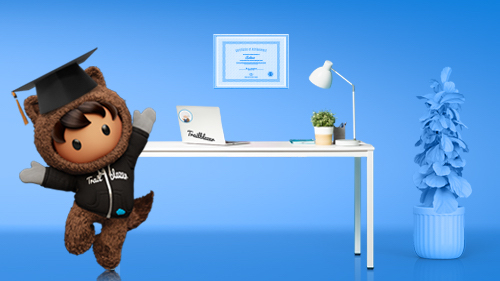
Get your FREE 30-day trial.
Please complete all fields.
Prioritizing wellness at work is tricky. We know that it’s important — according to a 2014 study by the UK’s Department for Business, Innovation & Skills, there is a direct correlation between employee wellness and job performance — but in today's fast-paced, constantly connected workplace, it can be tough to make it a priority.
As a customer-oriented company, we know that we can only take care of our customers if we first take care of ourselves. Wellbeing is one of Salesforce’s fundamental values, so we devote a lot of time and resources to making sure that our Ohana is happy and healthy. We have standing and treadmill desks; we have workout classes; we have a wellness reimbursement program that offers employees $100 every month to be used on health and fitness programs; and we have wellness zones in which employees can put away their devices and practice mindfulness.
We also have a Press Pause speaker series, which provides employees with opportunities to “press pause” on their day-to-day activities to expand their minds and learn something new. Since speakers discuss subjects relating to our core values, we’ve had numerous sessions related to wellbeing, including lessons on managing workplace anxiety and meditation practices from a Zen master (we’ve also hosted Matthieu Ricard [“The Happiest Man Alive”], Tara Brach, Jack Kornfield, 30 monks from the Thich Nah Hahn Foundation, and more).
Achieving wellbeing can take different forms for different people, so it’s important to have flexible programs and initiatives.
Wellbeing in the workplace is possible, but it takes effort and alignment amongst all stakeholders: the company needs to provide the programs, management has to buy in so their employees feel they have permission to take advantage of the programs, and everyone needs to take personal responsibility for their wellness.
Without buy-in from managers, the above company-sponsored wellbeing initiatives would be essentially meaningless. Managers need to give their employees permission and encouragement to take breaks, unplug from their devices, and put health and happiness first. That comes from having transparency between managers and employees. Managers need to create a culture on their teams where employees can say “I need to take a yoga class right now,” and know that it’s not only acceptable, but encouraged.
Ideally, your managers are leading by example and also attending your wellness events and taking advantage of the programs too. Also, managers themselves are employees, so they should be reaping the wellness benefits so they too can become better, more efficient workers.
At Salesforce, we empower our managers to help them understand that wellbeing is a priority: we hold meditations at company All Hands meetings; we champion wellbeing in our monthly manager newsletters; we encourage active offsites; and more.
If your company and managers are committed to wellbeing in the workplace, that’s fantastic. Yet, the responsibility also lies in every employee to prioritize their own wellbeing. You can lead a horse to water, but you can’t make it get more sleep, eat healthy and exercise, or meditate. It takes a leap of faith to unplug from work and take care of ourselves, but it’s worth it: getting more sleep helps you earn more; eating healthy and exercising increases workplace productivity; and, meditation helps promote divergent thinking.
When your manager and company enable you to be well, you have no excuse not to be. Ultimately, we are the ones who choose whether or not to prioritize our health. We know what needs to be done — we need to do it.
So whether you are a manager or an employee, I encourage you to take time every day for your personal wellbeing. Pack a healthy lunch, take a midday walk, schedule a 15-minute meditation into your morning – whatever will help you bring your best self to work. If you practice what you preach, others will take note — and it will only be a matter of time before they start following your lead.
About the Author
Jody Kohner is the Vice President of the Employee Marketing & Engagement team at Salesforce. The span of her work ranges from managing the employer brand reputation and recruitment marketing initiatives through on-boarding new hires and all sorts of awesome programs designed to make employees love their job.